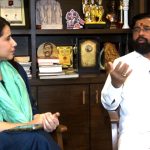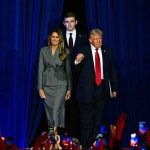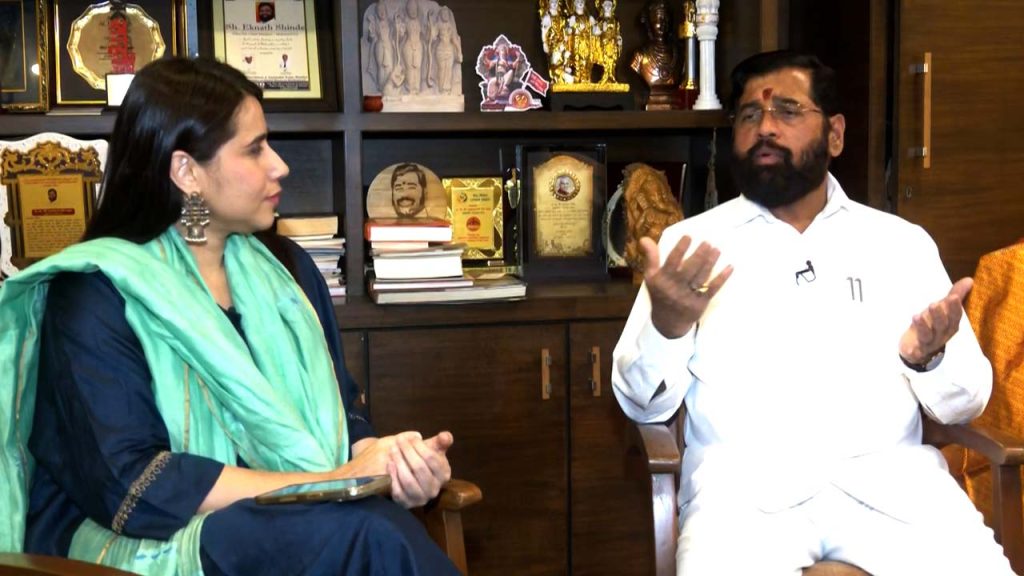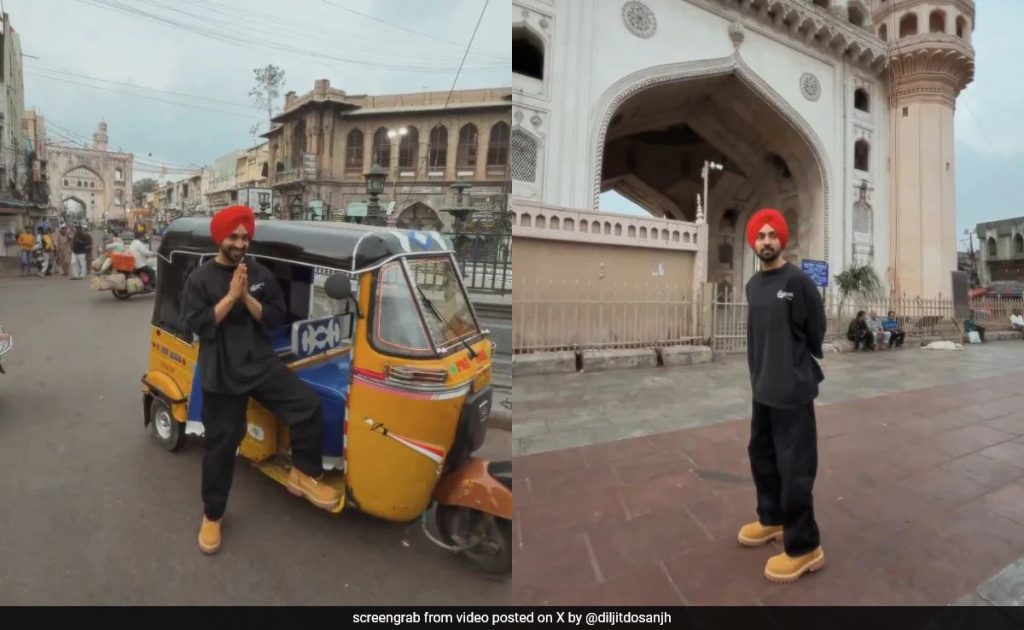The evolution of Elon Musk and Donald Trump‘s relationship has been a slow burn. Not too long ago, it could best be described as contentious. In July 2022, Mr Musk even suggested the former US President “hang up his hat and sail into the sunset.” Fast forward a couple of years and Mr Musk now holds the world’s largest megaphone with Make America Great Again (MAGA) printed on it as the US braces for the 2024 presidential elections this November.
Elon Musk’s influence on X (formerly Twitter) has skyrocketed since its acquisition two years ago, with followers nearly doubling to 194 million.
This meteoric growth, however, is marred by a reputation for spreading misinformation, contributing to political violence in countries like the United Kingdom and Venezuela. Analysts link X’s misinformation to real-world harm. Mr Musk’s controversial moderation policy changes have weakened X’s ability to regulate harmful content, amplifying incendiary rhetoric and spreading misinformation.
Engaging with far-right accounts, the self-proclaimed “free speech absolutist” Mr Musk has inadvertently provided these figures with a “personal algorithm booster,” amplifying their reach and influence on the platform. According to the Center for Countering Digital Hate, Mr Musk has made at least 50 posts this year concerning the US election that have been debunked by independent fact-checkers, collectively attracting over 1.2 billion views. And none of these misleading posts has received community notes to fact-check the claims.

Photo Credit: AFP
One example includes Mr Musk’s repost in July of a manipulated campaign advertisement from Democratic nominee and US Vice President Kamala Harris, in which she seemingly referred to herself as “the ultimate diversity hire.” This synthetic video has garnered 135.4 million views on X.
Mr Musk’s increasingly subversive commentary on social media raises questions about his political alignment. How did a technocrat born in a foreign land, who previously voted “overwhelmingly” for Democrats, become Cheerleader No.1 for Republican Donald Trump, a man impeached twice while in office?
Elon Musk’s Political Leaning
By the time Mr Musk was born in 1971 in apartheid South Africa, Nelson Mandela was into his seventh year of imprisonment in a cramped 8-foot by 7-foot dark cell at the isolated Robben Island prison, serving an 18-year sentence.
His rightward lean is the culmination of a political evolution unfolding over decades. As one of the richest and most powerful individuals globally, the Tesla and SpaceX chief’s political stances carry weight.
Historically, Mr Musk has been somewhat reticent in his political donations. His donations have often straddled the political spectrum, reflecting a more centrist approach earlier in his career. Mr Musk referred to the US government as the “ultimate corporation” at a CEO summit in December 2020. Throughout his career, he has maintained a somewhat cautious approach to political donations, contributing moderate amounts to candidates from both parties.

Photo Credit: AFP
At a Vanity Fair event in 2015, Mr Musk stated, “I get involved in politics as little as possible,” though he acknowledged the necessity of engaging when business interests are at stake.
His donations illustrate this ambivalence; he gave $2,000 to both George W. Bush and John Kerry in 2004, supported California Democrats, and donated $25,000 to the National Republican Congressional Committee (NRCC) in 2006. During the 2008 primaries, he contributed to both Barack Obama and Hillary Clinton but did not support either in 2016.
Initially a sceptic of Mr Trump, Mr Musk found himself publicly denouncing the idea of winning the GOP nomination as “embarrassing.”
“I don’t really have strong feelings except that hopefully Trump doesn’t get the nomination of the Republican party, because I think that’s, yeah … that wouldn’t be good,” Mr Musk said at a Vanity Fair event in 2015. “I think at most he would get the Republican nomination, but I think that would still be a bit embarrassing.”
2016 US Elections: A Radical Shift
Mr Musk has admitted to being a Democrat prior to the 2016 elections. His political worldview shifted dramatically during this time, particularly in response to Mr Trump’s rise. In various tweets, The SpaceX chief has expressed disillusionment with established political norms and what he perceives as a failure of the political elite to address the real needs of the American people. The divisive atmosphere of the 2016 election seems to have played a role in reshaping his beliefs, leading him to embrace a more libertarian ethos that pushes for individual freedom and scepticism of government intervention.
As Mr Trump assumed the presidency, Mr Musk’s political donations began to skew significantly Republican. By 2017, he was reportedly spending nearly seven times more on GOP campaigns than Democratic ones. His willingness to accept positions on two of Mr Trump’s White House councils highlighted a shift in stance. While Mr Musk initially backed Hillary Clinton’s environmental platform, he justified his participation in Mr Trump’s business council as a means to raise critical issues, including the controversial travel ban targeting Muslim-majority countries. However, he resigned from these councils in June 2017, citing Mr Trump’s decision to withdraw from the Paris Climate Accord, tweeting, “Climate change is real. Leaving Paris is not good for America or the world.”

Photo Credit: AFP
After a period of relative silence regarding Mr Trump, his public interactions with the former president began to increase, especially following Mr Trump’s attendance at a SpaceX launch in May 2020.
As Joe Biden took office, Mr Musk’s flirtations with the Trump-led GOP escalated. In mid-2022, he disclosed that he voted for a Republican candidate in a Texas special election. Mr Musk has argued that the Democratic Party has drifted further from the centre, making the GOP appear more palatable.
After acquiring Twitter, now known as X, in late 2022, Mr Musk reinstated Mr Trump’s account, calling the decision to expel him after the January 6 riots “morally bad” and “foolish to the extreme.”
Mr Musk publicly defended the former president following his felony conviction, claiming that it undermined public faith in the legal system. He echoed Mr Trump’s sentiments that the conviction was politically motivated. Mr Trump has even broached the possibility of the technocrat taking an advisory role in his cabinet should he win the presidency in 2024.
The relationship between the two culminated in an official endorsement. Mr Musk’s positioning alongside Mr Trump places him in contrast to figures like Mark Zuckerberg, the CEO of Meta, who has maintained a more centrist approach amid the increasing polarisation in tech and politics.
The Other Social Media Giant
Mark Zuckerberg, CEO of Meta (formerly Facebook), has grown increasingly disillusioned with politics. Once seen as a bridge between technology and political advocacy, Mr Zuckerberg has retreated from that role.
The Facebook co-founder’s disenchantment with politics has been shaped by years of negative experiences in Washington. In a letter to the US Congress in 2021, he revealed that the Biden administration pressured Meta to censor COVID-19 misinformation beyond what he was comfortable with, admitting that this interference made him appear biased. He also noted that he would not repeat his previous financial contributions to support election infrastructure, such as his infamous $400 million donations to the Center for Tech and Civic Life and the Center for Election Innovation and Research, which were intended to improve voting conditions during the pandemic. The contributions, earned severe backlash, especially from Republicans who accused Mr Zuckerberg of trying to bolster Democratic turnout.

Mr Zuckerburg has hired prominent Republican strategist Brian Baker to help repair Meta’s strained relationship with conservative media and officials. The 2020 “Zuckerbucks” controversy, in particular, has become a flashpoint in Republican criticism of the Meta chief.
Mr Zuckerberg has also pivoted away from the political discourse that characterised his company’s approach during the 2020 presidential polls. Just days before that election, Mr Zuckerberg was concerned about potential civil unrest resulting from a divided nation. He stated that Meta needed to do “well beyond what we’ve done before” to protect the electoral process.
However, in a recent statement announcing lacklustre third-quarter results, Mr Zuckerberg omitted any mention of democracy or election integrity. Instead, he expressed a focus on creating innovative products, leading analysts to question Meta’s commitment to political accountability. This abrupt change is especially striking for those who recall Mr Zuckerberg’s frequent reassurances about safeguarding the electoral process and combating misinformation during key electoral periods.
How Silicon Valley Votes
In Silicon Valley, once a liberal stronghold, tech elites are increasingly expressing support for Mr Trump. In 2016, nearly all political contributions from Silicon Valley went to Hillary Clinton. By 2020, tech executives intensified their efforts to defeat Mr Trump, except for a handful of contrarians. But something has changed.
As reported by the Wall Street Journal, Mr Musk pledged $45 million per month to a pro-Trump super Political Action Committee (PAC) starting in July. Other tech heavyweights like David Sacks, a former critic of Mr Trump’s actions surrounding the January 6 Capitol riot, have also thrown their weight behind the former president.

In Silicon Valley’s heartlands of San Mateo and Santa Clara counties, more than half of voters remain registered Democrats as of 2022, with Republicans making up just 15 per cent. Historically, venture capitalists and tech executives overwhelmingly supported Democratic candidates. According to a Wired analysis, Democrats received $2 for every dollar sent to Republicans from the 20 most active political contributors in Silicon Valley. This remains consistent with a 2017 study showing tech elites favouring progressive policies, from wealth redistribution to immigration reform.
However, there’s one key issue where tech moguls diverge from the Democratic platform – government regulation. As Biden ramps up antitrust lawsuits against major tech companies, including Apple, Alphabet (Google’s parent), Meta, and Amazon, some Silicon Valley elites are gravitating toward Mr Trump, whose economic stance and promises of lighter regulatory burdens appear more appealing to them.
The administration’s crackdown on crypto, including lawsuits against Coinbase and Binance, has also nudged crypto moguls toward the Republican camp.
Amazon chief Jeff Bezos, who has kept a more subdued profile, faced his own controversy when he abruptly cancelled The Washington Post’s endorsement of Democratic nominee Kamala Harris – a decision that prompted a mass cancellation by Post subscribers.
The repercussions of Mr Bezos’s decision were immediate: nearly a quarter-million Post readers ended their subscriptions, perceiving the move as an attempt to appease Mr Trump. While Mr Bezos denies any political intent, many of The Post’s loyal readers have their doubts, especially as it has often been critical of Mr Trump’s policies.
On the other hand, Sam Altman, co-founder of ChatGPT’s parent company Open AI, has consistently donated to Democrat politicians since 2013, as per data from OpenSecrets. Mr Altman has reportedly donated over $1 million to Democratic candidates in his home state California alone.
2024: What’s The Endgame
For months, Mr Musk has used X to promote conservative causes, and push conspiracy theories, often targeting immigration policies and railing against what he calls the “woke mind virus.” However, his endorsement of Mr Trump and participation in his public rallies signals Mr Musk’s deeper engagement in US politics.
Election officials in critical battleground states such as Pennsylvania, Michigan, and Arizona are grappling with a surge in election misinformation emanating from X. Mr Musk’s amplification of debunked election claims is posing a serious challenge for officials trying to maintain public trust in the voting process. Despite multiple attempts to fact-check Mr Musk in real time, election officials find themselves repeatedly outmatched. According to CNN, Stephen Richer, an Arizona election official, has even sent personal notes to Mr Musk, urging him to curb the spread of falsehoods.
Michigan Secretary of State Jocelyn Benson has been one of the few officials able to counter Mr Musk’s claims on X effectively. After Mr Musk posted inaccurate claims about Michigan’s voter registration, Ms Benson’s fact-check reached over 33 million views. But even this effort led Mr Musk to retaliate, accusing her of lying.

Photo Credit: AFP
In other battleground states like Georgia, officials are forgoing attempts to engage with Mr Musk directly, instead holding regular press conferences to counter misinformation. As the election nears, officials are increasingly concerned about the unchecked spread of falsehoods on X, which they fear could lead to voter confusion and legal challenges post-election.
Beyond misinformation, Mr Musk has been accused of turning X into an echo chamber for conservative voices, reinstating White supremacists and conspiracy theorists while clamping down on content that challenges right-wing narratives.
Mr Musk’s endorsement of Mr Trump goes beyond shared political ideologies. His vast business empire – spanning Tesla, SpaceX, Neuralink, and X-relies heavily on government contracts, subsidies, and favourable policies. Should Mr Trump return to the White House, the tech billionaire stands to gain access to even more significant opportunities.
Mr Musk is building what he calls the “world’s largest supercomputer” in Memphis for his AI startup, xAI. This high-stakes project, however, has raised eyebrows and concerns over its secrecy and potential impacts on local resources. According to a Forbes report, neither Memphis residents nor city council members were informed until the project was well underway, despite xAI’s rapid progress and heavy resource demands.
The report claims that six months ago, Mr Musk’s representatives held confidential meetings with local and federal law enforcement agencies, including the FBI, the Department of Homeland Security, and the Memphis Police Department. Organised by the Greater Memphis Chamber, the discussions around the project required attendees to sign non-disclosure agreements (NDAs) with CTC Property, a shell company managed by Mr Musk’s close advisor Jared Birchall. Known for overseeing Mr Musk’s ventures from SpaceX to Neuralink, Mr Birchall has reportedly enforced similar confidentiality on other Musk-led projects across the US
In just four months, xAI’s Memphis facility – dubbed “Colossus” – went online in a repurposed factory near the Mississippi River. This massive supercomputer will draw enough power for 100,000 homes and requires more than a million gallons of water daily for cooling. The Tennessee Valley Authority (TVA), which will provide up to 150 megawatts of electricity, is now developing an entirely new substation to meet xAI’s needs. TVA has not commented on its agreements with xAI, and it remains unclear if it signed an NDA with Mr Musk’s team.
The handling of Mr Musk’s project adds to the growing list of NDAs shielding corporate projects from public scrutiny. According to Forbes, in Texas and Nevada, Mr Musk’s companies used similar agreements to conceal key details from state officials.

Photo Credit: AFP
A key element of Mr Musk’s potential influence under a Trump presidency is the proposal that he lead a government efficiency commission. During their August conversation, Mr Musk suggested the creation of such a commission to rein in government spending, offering his expertise in cost-cutting. Mr Trump responded enthusiastically, praising the Tesla chief as the “greatest cutter” of jobs and budgets.
It is not the first time that a call for an “efficiency commission” has been made. Former President Ronald Reagan established a similar body called the Grace Commission during his presidency between 1981-89.
If Mr Musk were to head such a commission, he would gain a direct role in shaping federal spending priorities, giving him unprecedented influence over the government’s financial policies. This would also put him in a position to shape regulations that could benefit his own companies. SpaceX, for example, depends on federal contracts for rocket launches, while Tesla benefits from tax credits and subsidies for electric vehicles. Mr Musk’s involvement in government could give him the power to shape rules in ways that favour his business ventures.
According to the New York Times, SpaceX and Tesla have secured at least $15 billion in government contracts over the last decade.
Mr Musk’s foray into national politics is not entirely unexpected. His personal and business ethos have always been aligned with a libertarian, anti-regulation philosophy. He has frequently clashed with government oversight, particularly in California, where he fought against public health restrictions during the COVID-19 pandemic and has sparred with labour interests.
But Washington is a different arena. The federal government’s bureaucracy, regulations, and competing interests present a more complicated landscape than the world of Silicon Valley startups and high-tech innovation. Mr Musk’s potential role in a future Trump administration could place him at the intersection of business, politics, and governance in unprecedented ways.
Critics argue that Mr Musk’s history as a contrarian and his approach to leadership, which has often involved drastic cost-cutting and labour disputes, may not translate well into the political sphere.
Mr Musk’s political clout has grown significantly since his purchase of X. While his platform has lost value, with investors reportedly losing over $24 billion, Mr Musk’s influence in conservative political circles has increased. His willingness to leverage X as a political tool, combined with his ability to engage with Mr Trump and other political figures directly, positions Mr Musk as an unexpected player in the upcoming election.









